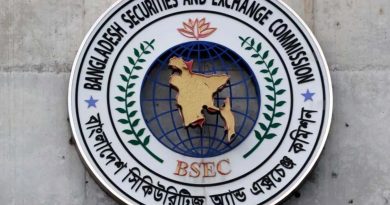Bangladesh Bank’s plan to merge five crisis-hit Shariah-based banks is gaining pace, with the process expected to begin within a week, Governor Dr Ahsan H. Mansur told reporters on Monday following a meeting with bank officials.
The consolidation — involving First Security Islami Bank, Global Islami Bank, Union Bank, Social Islami Bank, and Exim Bank — comes as their default loan ratios range between 48% and 96%, placing them among the most distressed in the sector. The merged entity will be managed under a unified, state-run structure, with government funding support under consideration.
Economists have hailed the initiative as a potentially pivotal step toward repairing Bangladesh’s fragile banking system, but warned that political resistance and deeper structural weaknesses could undermine its success.
“This is a positive move. We all want these banks to return to a healthy state, and it is encouraging to see Bangladesh Bank taking decisive action,” said Dr Toufic Ahmad Choudhury, former Director General of the Bangladesh Institute of Bank Management (BIBM). “But mergers alone will not fix the core problems.”
Dr Choudhury cautioned that political backlash could stall reforms, recalling how former finance minister Saifur Rahman abandoned a plan to close 500 bank branches due to party opposition. “The root issue is default loans, not capital adequacy. Unless willful defaulters are tackled, we will be back to square one,” he said, also questioning accountability for banks’ failure to repay depositors.
Dr M. Mashrur Reaz, Chairman of Policy Exchange Bangladesh, stressed that “banking is a business built on trust — once that’s gone, the system collapses.” He urged strict enforcement against defaulters and transparent criteria for retaining skilled staff while removing underperformers. “Incompetent insiders often drive these crises. Reforms will be tough, but they’re essential to restore sector stability,” he said.
If implemented as planned, the merger would mark one of the most sweeping interventions in Bangladesh’s financial sector in recent years, potentially setting a precedent for further consolidation among weak lenders. But analysts agree that without parallel reforms in governance, lending discipline, and political influence over credit, the impact may be short-lived.






